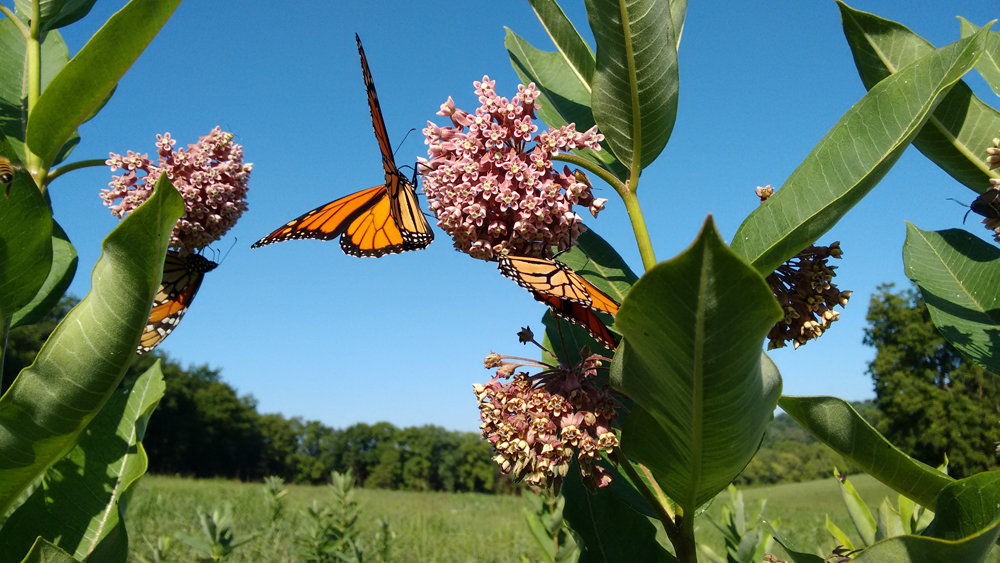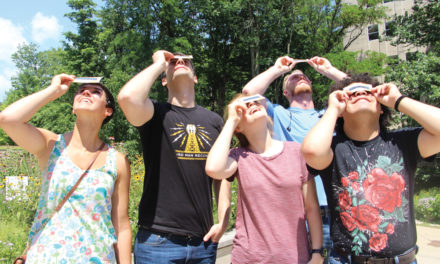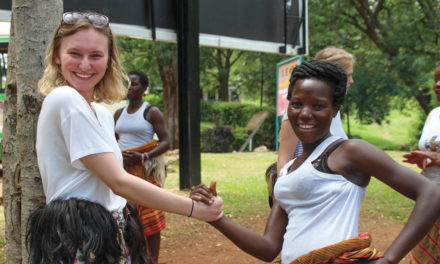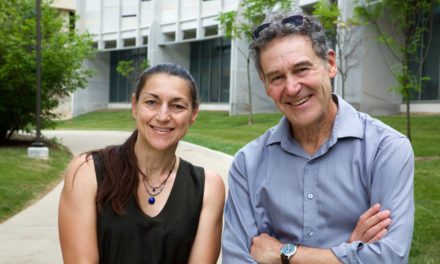
by ANNA GROOVER
Monarch caterpillars are picky eaters, dining exclusively on the leaves of the milkweed plant. Monarch butterflies are equally picky, only laying their eggs on milkweed. Unfortunately for monarchs, milkweed is a native plant that disappears when invasive plant species disrupt an ecosystem.
“If invasive plants come in and eliminate the milkweed, that means not just milkweeds are gone, monarchs are gone,” says Ellen Jacquart, chair of Monroe County-Identify and Reduce Invasive Species (MC-IRIS). “If you lose the plants, you lose everything that relies on those plants—the insects, the birds that rely on the insects for food. It’s a domino effect.”
Invasive plants are non-native plant species capable of wreaking havoc in ecosystems unaccustomed to them. They contribute to ecosystem degradation, biodiversity loss, and human health problems. For example, the presence of bush honeysuckle has been proven to increase tick-borne diseases in humans. They also cost the U.S. $35 billion each year through direct damage, treatment costs, and losses in productivity.
Since 2009, MC-IRIS has been working to protect Bloomington’s native ecosystems. Its volunteers accomplish this through community education programming and direct interventions, including free plant surveys for landowners. Surveys are conducted April to October, but landowners can sign up for a survey throughout the year.
Additionally, MC-IRIS partners with the City of Bloomington Parks and Recreation Department to hold Weed Wrangle events the first Saturday of each month, March through November. There, volunteers tackle an invasive plant species that’s plaguing city parks. At Take Control workshops, residents get a crash course in fending off invasive plants in their own yards.
Mary Welz (Hallinan), regional specialist with Southern Indiana Cooperative Invasives Management (SICIM) and a volunteer with MC-IRIS, says involving all of Bloomington is crucial. “Invasive species don’t respect boundaries, so we have to be able to reach everybody,” she says. “Otherwise, it’s not going to be successful.”
Although pulling garlic mustard may seem straightforward, larger ideals are at stake for MC-IRIS. One of them is recognizing the importance of native plant species. “We lose everything when we lose our native plants,” Jacquart says.
For more information, visit mc-iris.org and sicim.info.









